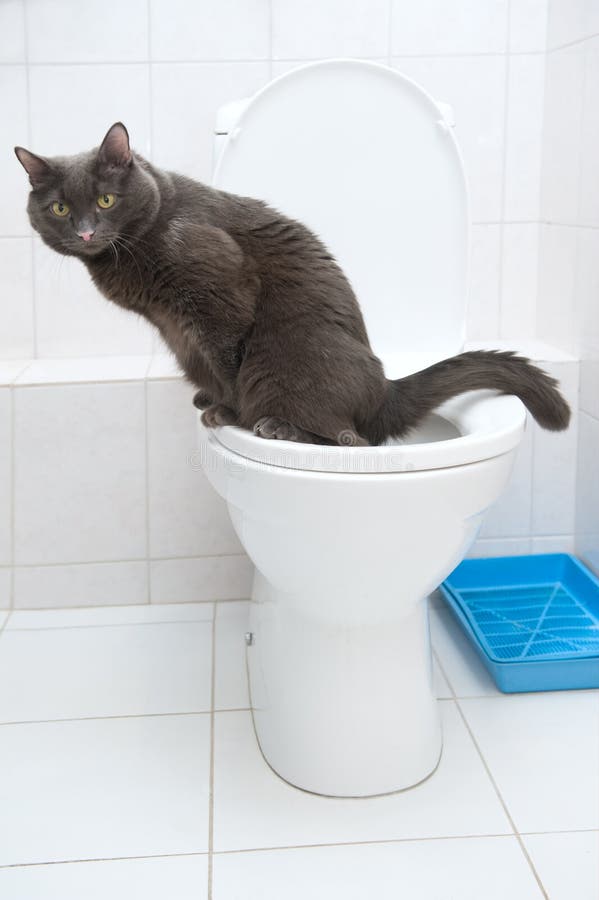Why Flushing Cat Poop Down Your Toilet Is Harmful - Suggestions for Proper Handling
Why Flushing Cat Poop Down Your Toilet Is Harmful - Suggestions for Proper Handling
Blog Article
What're your thoughts and feelings on Can You Flush Cat Poo or Litter Down the Toilet??

Introduction
As feline owners, it's important to bear in mind just how we deal with our feline buddies' waste. While it might seem hassle-free to purge pet cat poop down the toilet, this method can have damaging repercussions for both the atmosphere and human wellness.
Alternatives to Flushing
Luckily, there are much safer and extra accountable ways to take care of pet cat poop. Consider the adhering to alternatives:
1. Scoop and Dispose in Trash
One of the most typical technique of taking care of feline poop is to scoop it right into a biodegradable bag and throw it in the garbage. Be sure to utilize a committed trash inside story and deal with the waste quickly.
2. Usage Biodegradable Litter
Select eco-friendly feline litter made from products such as corn or wheat. These litters are environmentally friendly and can be securely disposed of in the garbage.
3. Hide in the Yard
If you have a lawn, take into consideration burying pet cat waste in an assigned location far from vegetable yards and water sources. Make certain to dig deep adequate to prevent contamination of groundwater.
4. Mount a Pet Waste Disposal System
Invest in a pet waste disposal system particularly made for feline waste. These systems utilize enzymes to break down the waste, reducing odor and ecological effect.
Health and wellness Risks
In addition to environmental concerns, purging feline waste can likewise pose wellness threats to people. Cat feces might consist of Toxoplasma gondii, a parasite that can create toxoplasmosis-- a potentially severe ailment, especially for pregnant ladies and people with damaged immune systems.
Ecological Impact
Flushing feline poop introduces harmful microorganisms and bloodsuckers into the water, positioning a considerable threat to aquatic ecological communities. These contaminants can negatively affect marine life and concession water top quality.
Conclusion
Responsible animal possession extends beyond supplying food and shelter-- it additionally entails appropriate waste administration. By avoiding purging cat poop down the bathroom and selecting alternative disposal methods, we can minimize our ecological footprint and safeguard human health and wellness.
Why You Should Never Flush Cat Poop Down the Toilet
A rose by any other name might smell as sweet, but not all poop is created equal. Toilets, and our sewage systems, are designed for human excrement, not animal waste. It might seem like it couldn’t hurt to toss cat feces into the loo, but it’s not a good idea to flush cat poop in the toilet.
First and foremost, assuming your cat uses a litter box, any waste is going to have litter on it. And even the smallest amount of litter can wreak havoc on plumbing.
Over time, small amounts build up, filling up your septic system. Most litter sold today is clumping; it is made from a type of clay that hardens when it gets wet. Ever tried to scrape old clumps from the bottom of a litter box? You know just how cement-hard it can get!
Now imagine just a small clump of that stuck in your pipes. A simple de-clogger like Drano isn’t going to cut it. And that means it’s going to cost you big time to fix it.
Parasitic Contamination
Believe it or not, your healthy kitty may be harboring a nasty parasite. Only cats excrete Toxoplasma in their feces. Yet it rarely causes serious health issues in the cats that are infected. Most people will be fine too if infected. Only pregnant women and people with compromised immune systems are at risk. (If you’ve ever heard how women who are expecting are excused from litter cleaning duty, Toxoplasma is why.)
But other animals may have a problem if infected with the parasite. And human water treatment systems aren’t designed to handle it. As a result, the systems don’t remove the parasite before discharging wastewater into local waterways. Fish, shellfish, and other marine life — otters in particular — are susceptible to toxoplasma. If exposed, most will end up with brain damage and many will die.
Depending on the species of fish, they may end up on someone’s fish hook and, ultimately on someone’s dinner plate. If that someone has a chronic illness, they’re at risk.
Skip the Toilet Training
We know there are folks out there who like to toilet train their cats. And we give them props, it takes a lot of work. But thanks to the toxoplasma, it’s not a good idea.

I discovered that piece of writing on Don’t flush cat feces down the toilet while doing a search on the internet. Appreciated our blog entry? Please share it. Let another person discover it. Thanks a lot for your time. Don't forget to come visit our site back soon.
Click Here Report this page